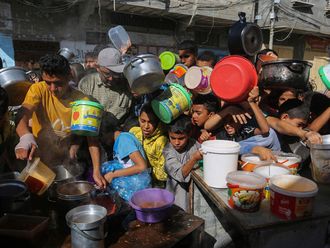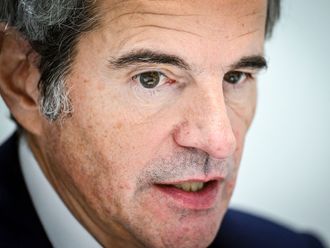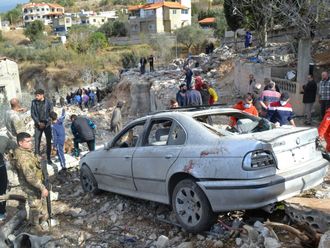In Egypt, the military ushered Mubarak out of office, but are the supposed caretakers moving towards democracy? It remains unclear whether they are prepared to relinquish power. Meanwhile, Brotherhood leaders have already made huge gains in the ongoing parliamentary elections.
Bashar Al Assad may cling to power in Syria, but he will be isolated abroad and remain hollow at home. Even regimes that have experienced limited unrest — Saudi Arabia, Jordan, Algeria — are entering a new era.
Where old regimes survive, they will be weak; where new ones come in, they will be weaker, because old institutions can be destroyed more quickly than new ones can be built.
Promises
Both new and old leaders must play to public opinion, and this may lead to rash, incoherent foreign policies, as politicians make campaign promises that are not in their countries' interests to fulfil.
It is hard to imagine new leaders, who need to play to anti-Israel public opinion, sitting down with their Israeli counterparts. In Syria, where thousands have already died, the body count may grow exponentially as sectarian killings spread and peaceful protesters take up arms.
In Yemen, the resignation of Ali Abdullah Saleh has not ended the turmoil throughout the country. And Libya, lacking strong institutions and divided by tribal and political factions, may never get its new government off the ground.
If unrest spreads, families will leave their homes, burdening neighbouring states and incubating fighters for future conflicts. Perhaps one million Libyans sought refuge in nearby countries while civil war raged there this year.
Instability
Tens of thousands of Syrians have fled, and more will leave if the violence there escalates — as it shows every sign of doing. In Turkey, Syrian refugees could become a source of recruits for a future opposition army that would fight the regime in Damascus.
These conflicts could widen if neighbours intervene, whether because they fear more instability or because they want to consolidate their influence across borders.
For example, the collapse of the Yemeni regime may lead Saudi Arabia to move directly against Al Qaida forces and other perceived threats there.
Meanwhile, Turkey, Iran, Iraq, Jordan and Israel all have strong interests in Syria and may arm factions or otherwise get involved simply to offset their rivals.
Neighbouring Lebanon's history of civil war and foreign intervention offers a depressing precedent for how a local conflict can drag in neighbours.
Distrusted and broke, the United States can do little to make the Arab Winter better, but it can do a lot to make it worse. The value and possibility of economic aid, for instance, are questionable. Regimes such as Mubarak's used American aid to prop themselves up and resist democracy.
While supporting new democratic parties is a better use of dollars, it is hard to imagine a budget-conscious Congress approving serious aid for new governments that will inevitably include Islamist groups.
Nor would the region's true democrats necessarily welcome US support, with its stench of foreign interference.
Washington has the most influence with the region's militaries, but supporting them presents a dilemma. Militaries were supposed to be the "orderly" part of an orderly transition to democracy in the Middle East, but as Egypt's experience makes clear, most officers want to keep their perks and power, and US support can help them do that.
Managing crises
Outside Egypt, militaries are politicised by tribe (Yemen), sect (Syria) and loyalty to the old order (everywhere), making them part of the problem, not the solution.
The Arab Spring began without US help, and the people of the region will be the ones to determine its future. Washington should recognise that change is coming and support it, especially in key power centres such as Egypt.
But inevitably it will play catch-up, managing crises where it can or must to keep instability from spreading.
This could involve helping refugees, using diplomacy to try to prevent neighbours from intervening and escalating a conflict, and continuing to aggressively pursue Al Qaida affiliates so they do not threaten Arab nations or the United States.
Just a few months ago, President Barack Obama optimistically declared that, across the Arab world, "those rights that we take for granted are being claimed with joy by those who are prying loose the grip of an iron fist."
Free elections
We can hope that Tunisia will lead the region not only in loosening that grip, but in creating real democracy through free elections.
However, we must also recognise that the Arab Spring may not bring freedom to much, or even most, of the Arab world.
Even as the United States prepares to work with the region's new democracies, it also must prepare for the chaos, stagnation and misrule that will mark the Arab Winter.
Daniel Byman is the research director at the Brookings Institution's Saban Centre for Middle East Policy












